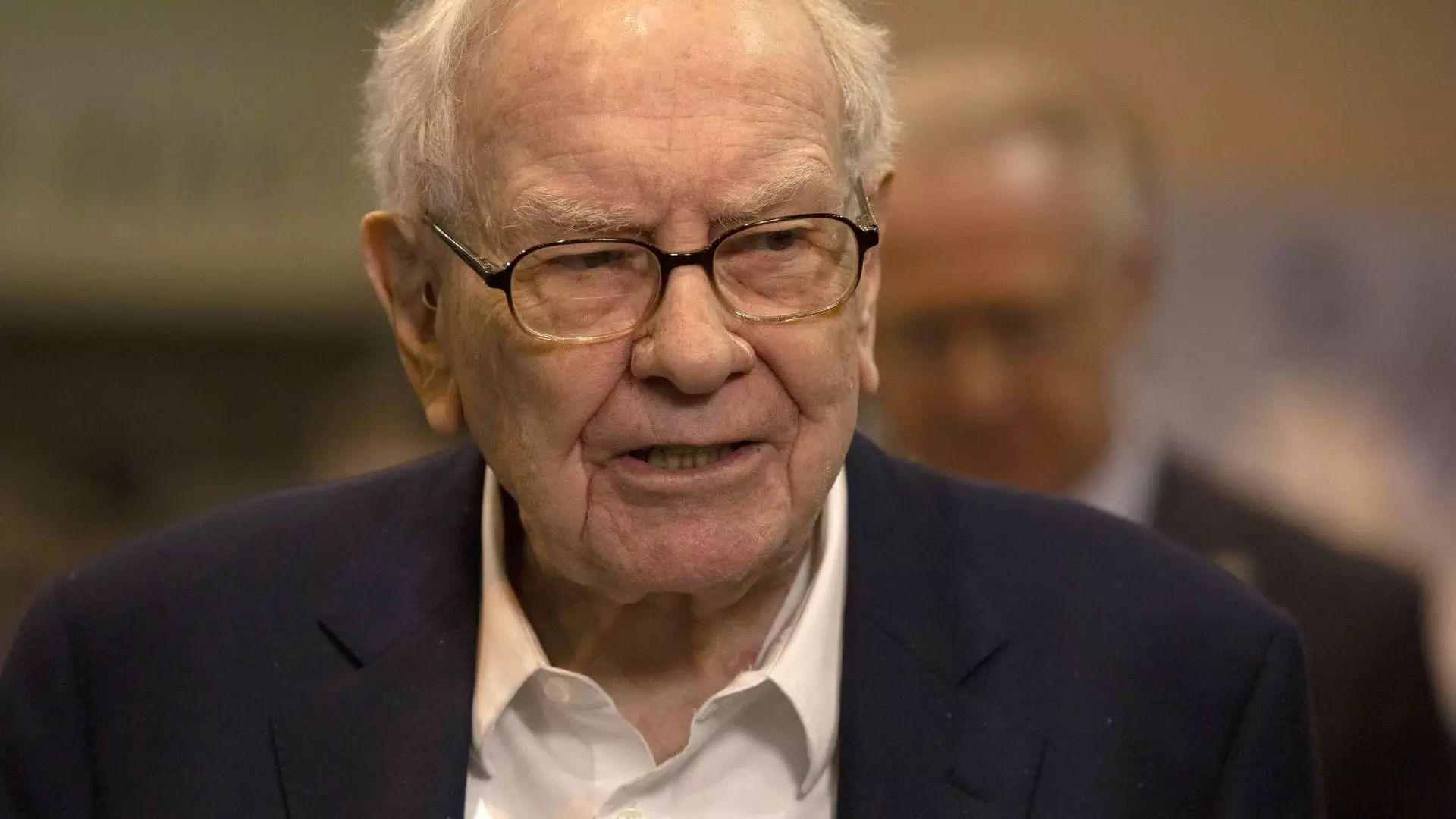Berkshire Hathaway, under the stewardship of its legendary CEO Warren Buffett, has recently made headlines for assembling a staggering cash reserve, which soared past $300 billion in the third quarter of this year. As of September 30, the conglomerate reported holding a remarkable $325.2 billion in cash—an increase from $276.9 billion in the previous quarter. This article delves into the nuances of Buffett’s investment strategy amid a backdrop of stock market dynamics, providing a critical analysis of Berkshire’s recent actions and their implications.
Warren Buffett, often referred to as the “Oracle of Omaha,” has been actively restructuring Berkshire Hathaway’s portfolio by selling substantial portions of his largest equity holdings, particularly in technology giants like Apple and Bank of America. The decision to offload approximately 25% of its Apple shares marks the fourth consecutive quarter that Berkshire has reduced its stake in the tech powerhouse. Similarly, the conglomerate has garnered over $10 billion in proceeds from selling off its position in Bank of America since mid-July—a clear indication of Buffett’s current market outlook.
Critically looking at these divestitures, Buffett’s strategy seems to reflect a cautious approach to market volatility and economic uncertainty. In light of fluctuating interest rates and a ballooning fiscal deficit, the decision to prioritize cash accumulation over equity holdings reveals a shift away from the aggressive investment philosophy that has characterized much of Buffett’s career. By divesting from stocks that have driven significant gains, Berkshire Hathaway appears to be positioning itself for potential turbulence in the market, making it essential to analyze the potential ramifications of this strategy.
Adding to the intrigue is Berkshire’s decision to abstain from repurchasing shares during the third quarter. In contrast to the expansive buyback activities seen in prior quarters, during which the company spent around $2 billion on repurchases, this quarter saw only a minor investment of $345 million in its own stock. Analysts often gauge a company’s confidence in its own valuation through repurchase activity, viewing it as a signal of strong fundamentals. The lack of buybacks suggests that Buffett may not currently view Berkshire’s intrinsic value as favorable enough to warrant such purchases.
This cautious stance is significant, especially given that the company’s Class A shares have climbed 25% year-to-date, outpacing the S&P 500’s 20.1% gain. The decision to hold off on buybacks casts light on Buffett’s conservative approach, indicating his belief that market conditions may not align favorably for aggressive stock acquisitions at this moment.
Despite the impressive total of $10.1 billion in operating earnings attributed to the conglomerate’s fully-owned businesses, this figure reflects a 6% decline compared to the previous year. Such a dip signifies challenges, particularly in the insurance sector, which has historically been a robust revenue stream for Berkshire. The performance falling short of analysts’ expectations further complicates the company’s narrative, as investors seek reassurance in an environment marked by high inflation and fluctuating interest rates.
Compounding these complications, the broader market has recently reacted to fluctuating fiscal policies and rising interest rates, notably with the 10-year Treasury yield surpassing 4%. This economic backdrop raises concerns about how sustainable the current stock market’s upward trajectory can be and whether it can remain resilient if inflationary pressures persist.
Buffett’s recent actions indicate an apprehensive stance regarding the economy while beckoning a potential reassessment of his longstanding investment principles. The mention of higher capital gains tax rates may foreshadow further selling activity as Buffett navigates towards preserving capital in anticipation of challenging economic conditions. Notable market figures, including prominent investors like Paul Tudor Jones, share concerns regarding ongoing fiscal deficits, further emphasizing the unpredictability that lies ahead.
Berkshire Hathaway’s strategic cash accumulation, coupled with significant stock divestitures and a lack of repurchases, indicates a cautiously pessimistic outlook from Warren Buffett amid current market uncertainties. As the company adapts its strategies in response to evolving economic realities, investors will likely keep a close eye on both the conglomerate’s performance and the broader implications of Buffett’s investment philosophy in this shifting landscape. The story of Berkshire Hathaway serves as a poignant reminder of the complexities and intricacies inherent to long-term investment strategies in an ever-changing financial world.

